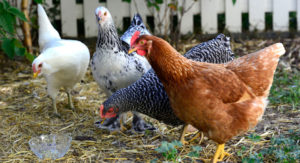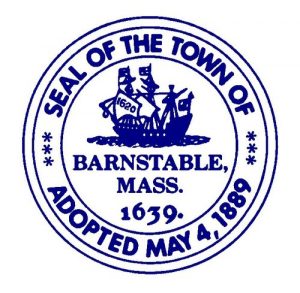 HYANNIS – More and more people are raising chickens and other poultry in their backyards and, with a little effort, this hobby can be healthy and safe for your family.
HYANNIS – More and more people are raising chickens and other poultry in their backyards and, with a little effort, this hobby can be healthy and safe for your family.
The danger comes from the spread of salmonella found in the bird droppings, which can be passed along to people, if eggs are not handled properly.
Salmonella can cause fever and diarrhea and abdominal cramps that may last for several days, and most cases don’t need medical treatment. However, an infection can be serious for people under 5 and over 65, pregnant women and people with compromised immune systems, such as those with HIV or undergoing cancer treatment.
Follow These Tips
The Centers for Disease Control and Prevention recommends backyard poultry owners follow these rules for sanitation:
• Wash your hands after touching live poultry or anything in the area where they are kept.
• Clean poultry equipment outdoors.
• Keep a separate pair of shoes to wear while caring for poultry and store them outside your house.
• Keep poultry away from children under 5, adults over 65 and people with weak immune systems.
• Don’t hug or kiss your poultry or let them in your house.
• Don’t eat or drink while in the poultry area.
The state Department of Agricultural Resources’ Division of Animal Health further recommends:
Buy chicks from a flock tested for Salmonella pullorum and isolate them for 10-14 days to observe for illness before adding them to your poultry.
Restrict access by other people to your flock, to prevent illness being spread by clothing or shoes.
Clean and disinfect all crates used for transporting your birds.
In late July, the federal Centers for Disease Control and Prevention reported that from mid-February to mid-July, 212 people in 44 states contracted salmonella from keeping poultry.
Of these, 34 were hospitalized and a quarter were children under 5. Salmonella outbreaks from backyard poultry have been increasing since 2001.
These numbers seem small when compared to the overall figures for salmonella infections in the United States. According to the CDC, salmonella, usually spread by contaminated food, sickens 1.2 million people annually. Of these, 23,000 are hospitalized and 450 die. That’s in one year.
“We don’t see a lot of salmonella, at least not in the in-patient setting,” said Kevin J. Mulroy, DO, a hospitalist at Cape Cod Hospital and chief quality officer for Cape Cod Healthcare. “It can cause fairly severe diarrhea but fortunately it can usually be treated with common antibiotics. We don’t usually treat with intravenous antibiotics until someone gets to the point where they are hospitalized with this – or if they can’t keep anything down. Diarrhea can also make a person dehydrated, so we may use intravenous fluids and electrolytes as well.”
State Requirements
Still, state and federal officials work to stem salmonella outbreaks from poultry. To prevent poultry from becoming infected, the state requires anyone who shows their birds at fairs or similar events, or sells live birds or live eggs for hatching, to have their flock tested for Salmonella pullorum and typhoid.
Most of the salmonella cases recorded by the state Department of Public Health aren’t attributed to a specific source, according to Dr. Catherine M. Brown, state epidemiologist and state public health veterinarian in the Bureau of Infectious Disease and Laboratory. However, Brown said she was aware of one case linked to a national outbreak associated with live poultry.
If you follow good sanitary habits, keeping poultry can be a fun and healthy hobby.
“I wouldn’t worry about your chickens,” Dr. Mulroy said. “Keep having your chickens, but you do want to practice good washing techniques – wash your food, wash your hands, wash your cooking area – then you should be safe. We have ways to treat Salmonella, if you start getting symptoms, make sure to see your doctor. Just being knowledgeable, being careful about it is the most important thing you can do. ”
By RICH HOLMES, Cape Cod Health News
Editor’s note: CCHN writer Laurie Higgins contributed to this report.
























